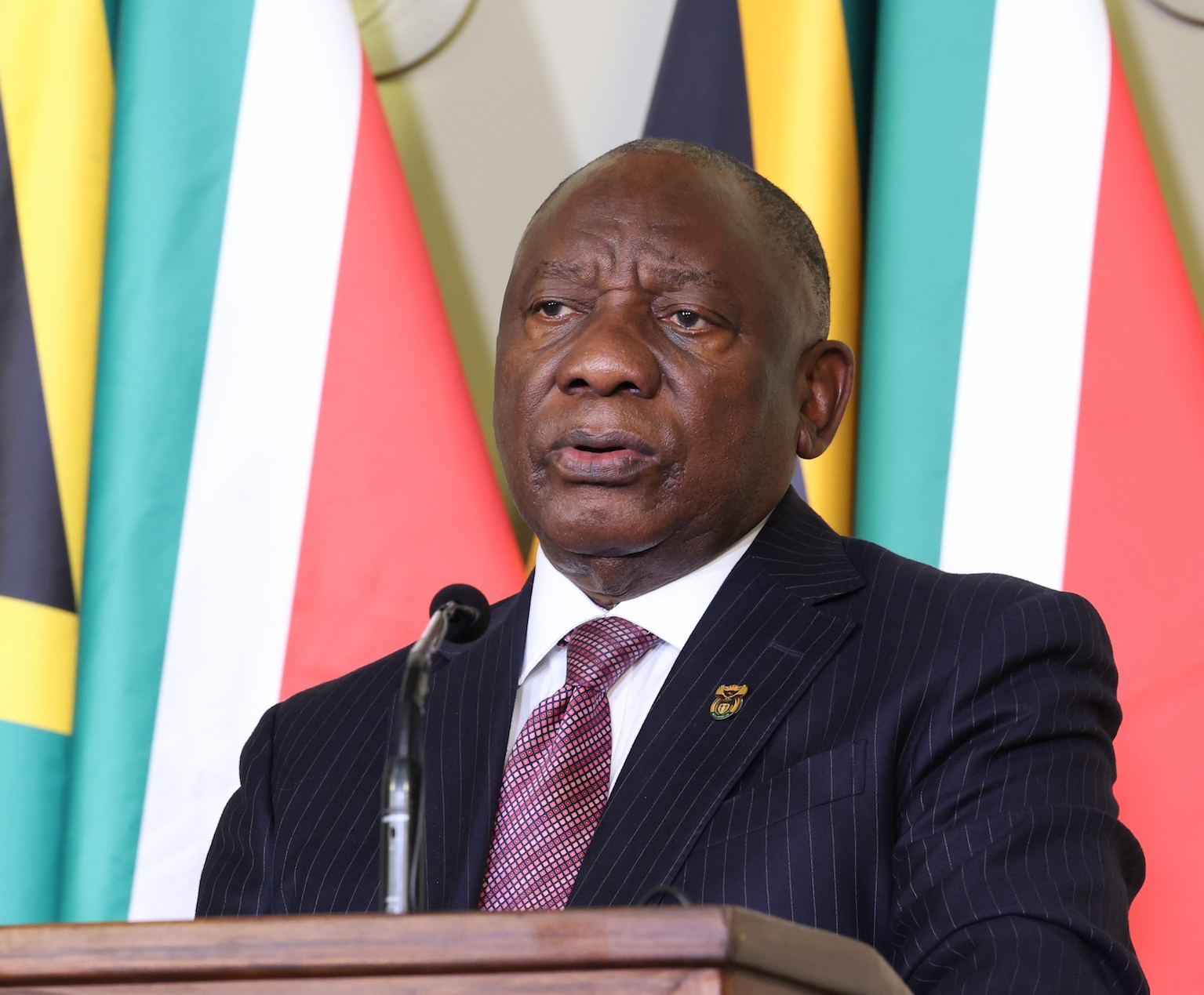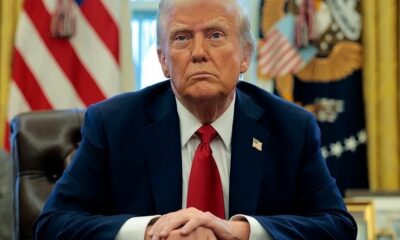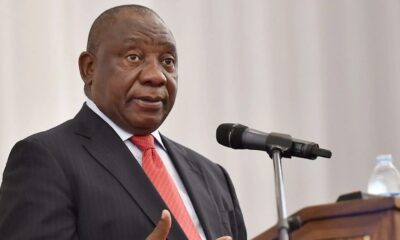News
Ramaphosa Responds to US Tariffs: “We’re Not Alone in This Fight”

South Africa’s citrus, car, and textile industries face a trade storm as US tariffs loom. Ramaphosa says it’s time to pivot.
Facing the Heat from Washington
President Cyril Ramaphosa has broken his silence on the sudden imposition of US tariffs, acknowledging that the 30% blow to South African exports is real and deeply troubling.
In his latest weekly newsletter, Ramaphosa warned that the new US measures will hurt not just big industries like agriculture and automotive manufacturing, but the lives and livelihoods of thousands of workers across the country. “The United States is South Africa’s second-largest trading partner,” he wrote. “These tariffs will have a considerable impact.”
The announcement came just days before the 7 August implementation date of the steep tariff hike announced by US President Donald Trump. It targets dozens of South African goods once protected under the African Growth and Opportunity Act (AGOA), which had provided duty-free access to US markets for over two decades.
But Ramaphosa insists that South Africa isn’t facing this battle alone.
South Africa Feels Singled Out
The situation stings more when viewed in regional context. South Africa is the only sub-Saharan African country hit with the maximum 30% tariff. Other nations, like Lesotho and Zimbabwe, will face a lower 15% tariff.
This targeted approach has been widely interpreted as a signal of deteriorating political ties between Pretoria and Washington, particularly since Trump’s return to office.
Relations have been tense. Trump has openly criticized South African land reform efforts, including unfounded claims about white farmers being systematically targeted. Those claims were swiftly rejected by the South African government, but the damage appears to have stuck.
Ramaphosa confirmed he met with Trump in May in an attempt to ease tensions. But according to insiders, the outcome was “discouraging,” with the conversation doing little to reverse course.
Exports at Risk, But Not to Blame
Ramaphosa pushed back against the idea that South African goods threaten US industry. “Our exports don’t compete with US producers. They support their industrial base,” he wrote.
Take citrus, for example. South Africa is the world’s second-largest citrus exporter, with a large share of fruit shipped to the US during its off-season. Ramaphosa pointed out that South African citrus actually helps stabilize US prices and fills gaps caused by falling local yields and disease outbreaks like citrus greening.
Similarly, local textiles, wines, and even auto components are exported not as competitors but as complementary imports that enrich US supply chains.
Yet these exports will now become drastically more expensive—and possibly less attractive to American buyers.
From Trade Tensions to Economic Threat
It’s not just about numbers on a spreadsheet. AGOA has been a lifeline for thousands of South African producers and exporters. From smallholder citrus farmers in Limpopo to car assembly lines in the Eastern Cape, these sectors now face the risk of shrinking orders, cut contracts, and job losses.
“This is a body blow to the economy,” said one agriculture export association member on X (formerly Twitter). “We’ve spent 20 years building trust with US buyers. Now it’s in jeopardy overnight.”
The knock-on effect could reach South Africa’s already fragile fiscus. With less export revenue and more domestic strain, government support programs may be tested in new and unpredictable ways.
What Government Plans to Do Next
Ramaphosa stressed that all diplomatic channels with Washington remain open. South African trade envoys have already proposed importing more US liquefied natural gas and agricultural goods, as well as investing in US mining and manufacturing ventures to balance trade flows.
But at the same time, the President is preparing for a future where the US may no longer be a dependable partner.
“We must reduce our dependence on any one market,” he warned. A new Export Support Desk has been set up to help local producers pivot toward other global buyers.
Government also plans to roll out a support package for affected companies and workers, although details have not yet been announced.
Looking to the Continent and Beyond
One major piece of South Africa’s long-term strategy lies closer to home: the African Continental Free Trade Area (AfCFTA), a vast, still-developing agreement aimed at turning intra-African trade into a serious economic engine.
“This is an opportunity,” Ramaphosa wrote. “Strengthening regional value chains will be key to building resilience.”
South Africa is also eyeing new trade relationships in Asia, the Middle East, and Latin America. Ramaphosa pledged to increase trade missions and export development programs to ensure local producers are not left adrift.
Not Just a South African Problem
Ramaphosa’s final message was one of solidarity: South Africa isn’t alone in facing these tariffs. “A number of export-reliant developed and developing economies are also grappling with these measures,” he said.
His point? The international trade order is shifting, fast and those who don’t adapt will fall behind.
A Critical Monday Ahead
A crucial press briefing is scheduled for Monday at 10 a.m. at the Germiston Civic Centre. Ministers of Trade and International Relations, Parks Tau and Ronald Lamola, will brief the public and media on next steps.
Meanwhile, ANC NEC member Dr Kgosientsho Ramokgopa told reporters this weekend that negotiations are “ongoing and robust.” He believes a breakthrough is still possible.
Time to Rethink, Not Retreat
The US tariff shock is a major wake-up call, but perhaps a necessary one. South Africa’s over-reliance on single trade channels has long been a vulnerability, and the time for diversification is now.
As harsh as this tariff may be, it might just push the country toward something better: a stronger regional trade bloc, smarter global outreach, and a more resilient export ecosystem.
Because if global trade is being rewritten, South Africa can’t afford to read from the old script.
{Source: IOL}
Follow Joburg ETC on Facebook, Twitter , TikTok and Instagram
For more News in Johannesburg, visit joburgetc.com



























